What is vermicompost bed?
Vermicomposting is the process of making compost with the help of worms. A vermicompost bed is a container or a bed made to house worms that enable the composting process. The worms consume the organic waste material and excrete vermicast, which is a nutrient-rich organic fertilizer.

How to Make a Vermicompost Bed
Here are the steps to make a vermicompost bed:
Choose a Container: You can use a wooden crate, a plastic box, or a metal container to house your worms. The container should have drainage holes to prevent moisture buildup.
Add Bedding: Worms require bedding material to thrive. You can use shredded newspaper, cardboard, coconut coir, or peat moss as bedding. Moisten the bedding material using water, but don’t let it become too wet.
Add Worms: The most commonly used worms for vermicomposting are red wigglers and European nightcrawlers. You can order these worms from a worm farm or buy them from a local garden center. Add worms to the bedding material.
Add Food: Worms require organic waste material to feed on. You can add fruit and vegetable scraps, coffee grounds, eggshells, and tea leaves to the vermicompost bed. Be careful not to add meat, dairy, or oily foods.
Maintain the Bed: Keep the bedding moist but not too wet. Keep the vermicompost bed in a shaded area away from direct sunlight. Stir the bedding once a week to allow oxygen to circulate, and add more food as required.
Harvest the Vermicast: After a few months, the worms will have consumed the organic waste material and produced vermicast. To harvest the vermicast, push the material to one side of the container and add fresh bedding and food to the other side. Wait a few days, and the worms will migrate to the fresh side, leaving the vermicast behind. Collect the vermicast and use it as an organic fertilizer for your garden plants.

Benefits of Vermicompost Bed
Here are some benefits of using vermicast as an organic fertilizer:
Nutrient-Rich: Vermicast is high in essential plant nutrients such as nitrogen, phosphorus, and potassium.
Soil Structure: Vermicast improves soil structure and increases water-holding capacity.
Disease Suppression: Vermicast suppresses soil-borne diseases and harmful nematodes.
Environmentally Friendly: Vermicomposting is an eco-friendly way of disposing of organic waste material.
In conclusion, a vermicompost bed is a simple and effective way of producing organic fertilizer for your garden. With a little bit of effort, you can create a nutritious and sustainable source of fertilizer using worms!
-
Sustainable Agriculture Vermicompost UAE
Sustainable Agriculture Vermicompost UAE Introduction Shrestha Bio Organics is a top-quality... -
Affordable Vermicompost For Agriculture UAE
Affordable Vermicompost For Agriculture UAE Introduction Shrestha Bio Organics is a... -
Organic Farming Vermicompost UAE
Organic Farming Vermicompost UAE Introduction Shrestha Bio Organics is a top-quality... -
Organic Vermicompost For Agriculture UAE
Organic Vermicompost For Agriculture UAE Introduction Shrestha Bio Organics is a... -
Natural Vermicompost Fertilizer in UAE
Natural Vermicompost Fertilizer in UAE Introduction Shrestha Bio Organics is a... -
Organic Fertilizer For Vermicompost UAE
Organic Fertilizer For Vermicompost UAE Introduction Shrestha Bio Organics is a... -
Organic Vermicompost Farming Solutions UAE
Organic Vermicompost Farming Solutions UAE Introduction Shrestha Bio Organics is a... -
Vermicompost For Organic Farming UAE
Vermicompost For Organic Farming UAE Introduction Shrestha Bio Organics is a... -
Urban Garden Vermicompost UAE
Urban Garden Vermicompost UAE Introduction Shrestha Bio Organics is a top-quality... -
Water Retaining Organic Fertilizer UAE
Water Retaining Organic Fertilizer UAE Introduction Shrestha Bio Organics is a... -
Certified Vermicompost Supplier UAE
Certified Vermicompost Supplier UAE Introduction Shrestha Bio Organics is a top-quality... -
Neem Enriched Vermicompost UAE
Neem Enriched Vermicompost UAE Introduction Shrestha Bio Organics is a top-quality... -
Vermicompost For Gardening UAE
Vermicompost For Gardening UAE Introduction Shrestha Bio Organics is a top-quality... -
Soil improvement Vermicompost UAE
Soil improvement Vermicompost UAE Introduction Shrestha Bio Organics is a top-quality... -
Premium Vermicompost For UAE Farms
Premium Vermicompost For UAE Farms Introduction Shrestha Bio Organics is a...


